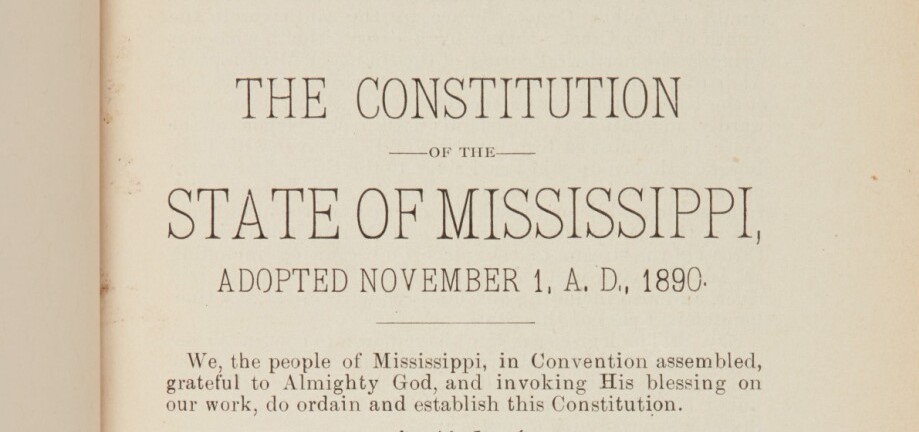
Hopkins v. Watson (Amicus)
What's at Stake
Mississippi is home to one of the strictest felon disenfranchisement schemes in the nation. The Mississippi Constitution permanently disenfranchises citizens upon a single felony conviction for certain crimes, including minor offenses like writing a bad check. As a result, the loss of rights under Mississippi’s scheme is mandatory, permanent, and effectively irrevocable. In Hopkins, plaintiffs, a class of formerly incarcerated individuals who lost their right to vote despite completing their sentences, argued that their disenfranchisement violated the Eighth Amendment’s prohibition on cruel and unusual punishment. A three-judge panel of the U.S. Court of Appeals for the Fifth Circuit ruled in the plaintiffs’ favor and struck down Mississippi’s disenfranchisement scheme as cruel and unusual punishment. But the Fifth Circuit decided to rehear the case en banc, a rare occurrence in which a case is reconsidered by the entire panel of the circuit’s active judges.
Summary
The ņŌįń√ŇŅ™ĹĪĹŠĻŻ, joined by our affiliate in Mississippi and the Reason Foundation, filed an amicus brief before the en banc Fifth Circuit in Hopkins, highlighting unique features that make this particular felon disenfranchisement scheme violative of the Eighth Amendment.
First, Mississippi’s scheme was intentionally designed in 1890 to exclude Black Mississippians from political and civic life, and it continues to have a disproportionate effect on Black citizens. The Eighth Amendment seeks to prevent the kinds of dignitary harms that flow from the continued operation of a lifetime voting ban rooted in invidious discrimination.
Second, Mississippi law provides no meaningful path for individuals to re-enter civic life once they are permanently disenfranchised. The primary means of rights reinstatement‚ÄĒlegislative restoration under Section 253 of the Mississippi Constitution‚ÄĒis entirely discretionary and almost completely illusory. The arbitrary, essentially irrevocable nature of Mississippi‚Äôs lifetime disenfranchisement scheme creates a serious risk of disproportionate punishment, which offends the central substantive guarantees of the Eighth Amendment.
Finally, as states across the nation have moved away from permanent disenfranchisement as a form of punishment, Mississippi’s especially harsh scheme is uniquely unusual. Accordingly, we urge the en banc court to invalidate the state’s felon disenfranchisement scheme. This case is presently pending before the Fifth Circuit.
Legal Documents
-
12/06/2023
Hopkins v. Watson ņŌįń√ŇŅ™ĹĪĹŠĻŻ Amicus Brief
Date Filed: 12/06/2023
Court: Appeals Court (5th Cir.)
Affiliate: Mississippi